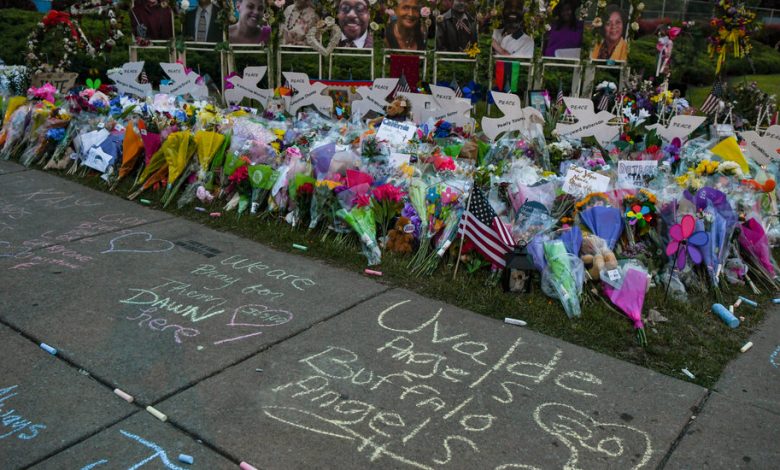F.B.I. Reports Drop in Hate Crimes, but Lack of Data Casts Doubt on Figures

WASHINGTON — The federal tally of hate crimes fell in 2021, but the statistics are deeply misleading because scores of police departments across the country, including in New York City and most cities in California, did not submit data.
Last year, 7,262 hate crimes were reported, compared with 8,263 in 2020, the F.B.I. reported on Monday.
Yet only about two-thirds of local departments, 11,883 of 18,812 agencies, reported hate crimes last year, down from more than 90 percent the year before.
Justice Department officials warned that the report did not paint a complete, or even an especially accurate, representation of hate crimes across the country, which are defined as attacks prompted by a victim’s race, ethnicity, sexual orientation, disability, gender or gender identification.
The reason for the apparent undercount, officials said, was a new crime data portal, the National Incident-Based Reporting System, that many local law enforcement agencies have struggled to incorporate into their existing networks.
Departments that did not shift to the new system were not able to submit hate crime statistics to the F.B.I., according to the Justice Department.
“Several of the nation’s largest law enforcement agencies, as well as some states, did not make the transition” to the system in time to meet the reporting deadline, the department said in a statement.
Groups like the Anti-Defamation League, which monitors antisemitic violence and speech, have reported significant increases in hate crimes over the past several years.
A separate survey conducted by the Center for the Study of Hate and Extremism, a research institute based at California State University, San Bernardino, found that between 2020 and 2021, hate crimes increased 15 to 25 percent in 52 jurisdictions that presented more comprehensive data. The steepest increases were in attacks against Asian Americans, said the center’s director, Brian H. Levin.
Some states that filed incomplete data with the F.B.I. had already released preliminary estimates that showed major increases in hate crimes. California, for example, has reported only 72 hate crimes to the federal government for 2021, even though the state’s attorney general’s office had previously logged that figure as 1,763.
“These new numbers are not only incomplete,” Mr. Levin said in an interview, “but it gives the false impression that things are getting better.”
Margaret Huang, the president of the Southern Poverty Law Center, a nonpartisan watchdog group based in Alabama, said a lack of complete data was detrimental.
“Accurate, comprehensive national data is integral to addressing the root causes, designing prevention strategies and providing the needed support to victims and communities,” she said.
